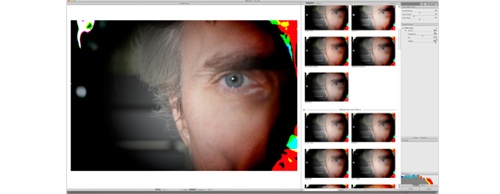By Erick Vlientinck
RadLab (www.gettotallyrad.com) is an US$149 Photoshop action set. With its own palette, you can start RadLab and decide whether you want it to work with your image on the same or a new layer, or as a smart object.
RadLab’s interface overtakes the Photoshop interface: On the left is the image; a middle column shows all the available effects (Stylets in RadLab speak); and at right are the controls. Users get a histogram, a Save/Cancel button, and for each group of effects a couple of simple slider controls. There are also sliders that control brightness, contrast, and warmth.
Totally Rad! claims their interface is the first one to make photo effects simple — a bold statement. I found RadLab’s interface not dramatically easier to use than Nik’s Color Efex Pro, which allows for more fine-tuning of each filter.
RadLab has a number of interesting effects you won’t find anywhere else and, as with Color Efex, users can create recipes by combining effects. But RadLab has its flaws. For example, if you tune an individual effect or Stylet, the change is immediately applied to all Stylets. One Stylet—the POS Lens—showed strange artifacts when I set the Strength and Vignette options to 179%. My images started showing pure red and yellow discoloration at the edges.
The way changing recipes rippled through the entire Stylets library was confusing. I could only get back to default values by resetting the recipe after saving it, or by restarting RadLab.
Rating: 5 out of 10
(This review is brought to you courtesy of “Layers Magazine”: http://layersmagazine.com/ .)



![[MD1] Timbuktu Pro 4.0](https://www.mactech.com/wp-content/themes/Extra/images/post-format-thumb-text.svg)